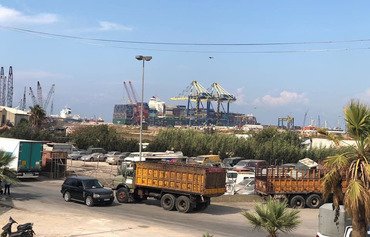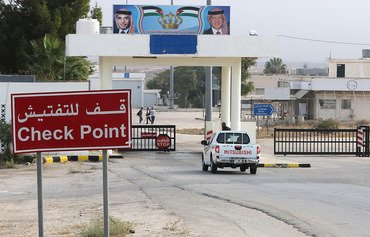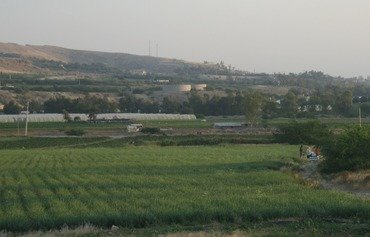Jordanian merchants and business leaders are calling for the reopening of the key border crossing between the kingdom and Syria to be expedited so trade activity between the two countries can resume.
The Syrian market is of vital importance to the Jordanian economy, they told Al-Mashareq, as well as to the kingdom's foreign trade, via transit operations to Turkey, Lebanon and European countries.
A Jordanian-Syrian technical committee held its first meeting Wednesday (September 12th) to discuss the reopening of the border crossings between the two countries, AFP reported.
"More meetings will be held in order to draw a full picture of the measures that need to be taken to reopen the border crossings over the next period," a source said.
Preparations for reopening border
Sarhan municipality personnel, in co-ordination with authorities at Jaber crossing (known as Nassib on the Syrian side), have cleared physical obstructions in anticipation of its reopening, said Sarhan mayor Khalaf al-Sarhan.
They are preparing the crossing to handle the anticipated workload in the event that a decision is made to restore it to operation, he told Al-Mashareq.
"Efforts are under way at the crossing to maintain and repair facilities and equipment to get them ready to process arriving and departing travelers, small vehicles, as well as trucks laden with goods," he said.
This is a normal part of the trade activity between the two countries, he said.
"The reopening of the border is of paramount importance to the [agricultural] sector, which suffered huge losses after the closure of the border several years ago," said Jordan Valley Farmers Union president Adnan Khaddam.
Around one billion dollars worth of goods were exported annually through the Jaber/Nassib crossing before the outbreak of the Syrian conflict in 2011, and its closure negatively impacted the economies of neighbouring countries, he said.
"Syria is an important market for Jordan, and the volume of agricultural exports was significant," Khaddam told Al-Mashareq.
"Farmers in Jordan were exporting large quantities of agricultural products to Europe and Turkey through Syria," he said, and after the closure of the border, shipping costs increased and farmers were adversely affected.
"We hope the border will be reopened soon," he said.
Over the past six years, Khaddam said, the agricultural sector, which contributes 3.2% of Jordan's gross domestic product (GDP), has lost more than seven billion dinars ($9.8 billion).
Thousands of trucks await
The trucking sector is ready to transport and exchange goods with Syria, said Syndicate of Jordanian Truck Owners chairman Mohammed Khair al-Daoud.
It is important that the reopening of the border crossing with Syria be expedited, he told Al-Mashareq.
"More than 6,000 Jordanian trucks are ready to transport goods," he said, noting that the majority of Jordanian trucks operated on the Syrian route before 2011.
"The truck transport sector lost more than $1.2 billion after the closure of the border with Syria," al-Daoud said.
"Syria is very important for Jordanian industries and trade, as it is the most economically feasible route for the transport of goods to Europe and Turkey, and so we hope the border will be reopened very soon," he said.
"Trade activity between Jordan and Syria will not return quickly to pre-2011 levels, when the annual volume of trade was about $1 billion," economist Hossam Ayesh told Al-Mashareq.
The reopening of the border will reduce the cost of Jordanian goods and trade and industry costs, he said, and will thus increase the competitiveness of Jordanian products, though this will take place gradually.
"The Syrian market is certainly very important for Jordan and is a transit point to Europe and Turkey, which are important markets for Jordan," he said.

![This photo shows the Syrian-Jordanian Free Zone between the two sides of the Jaber border crossing with Syria, which is known as the Nassib crossing on the Syrian side. [Photo courtesy of the Syrian-Jordanian Free Zone Company]](/cnmi_am/images/2018/09/18/14448-Jordan-Syria-zone-600_384.jpg)






